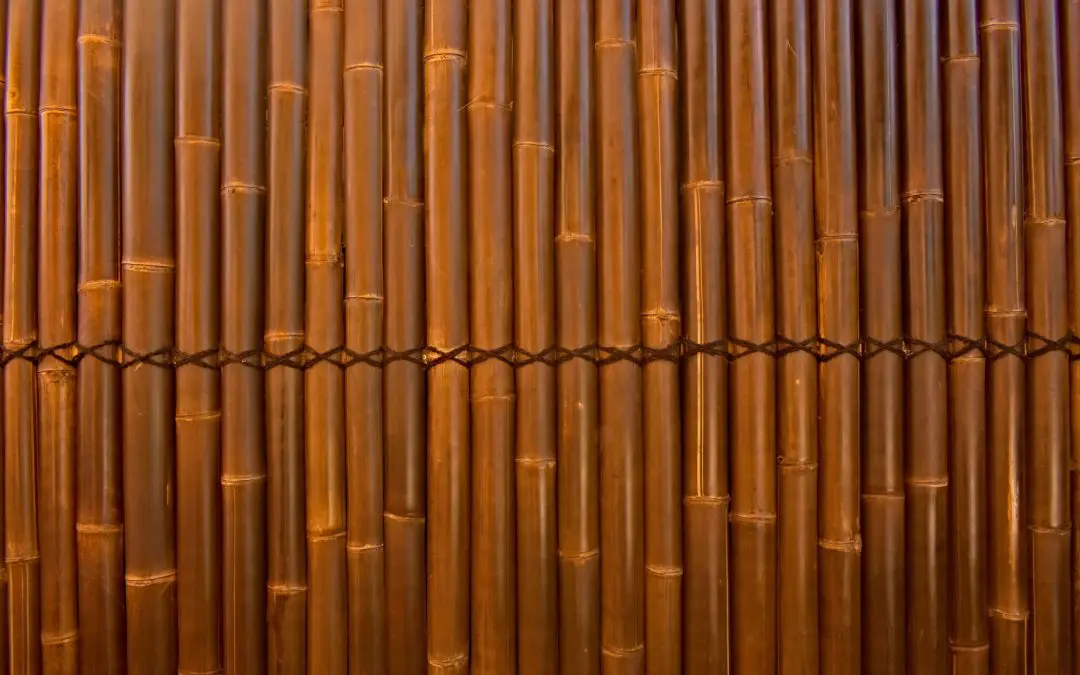Choosing the right fencing materials matters for how your yard looks and for the impact your choices make. If you’re planning a new fence or replacing an old one, there’s a smarter way to do it. Eco-friendly fencing materials offer durability, style, and sustainability without sacrificing performance. These options aren’t a compromise. They’re a step up.
Traditional wood fences require constant upkeep and often involve harvesting trees that take decades to regrow. Vinyl fences are made from plastic, which doesn’t break down and contributes to landfill waste. If you want something that lasts, looks sharp, and aligns with your values, it’s worth exploring sustainable alternatives.
Bamboo as a Fast-Growing Fencing Material
Bamboo is one of the most popular eco-friendly fencing materials for good reason. It grows quickly, often reaching maturity in just three to five years. That makes it highly renewable compared to hardwoods that take decades. Bamboo fencing comes in various styles, from sleek modern panels to more rustic, natural designs. It’s surprisingly strong and handles weather well when treated properly. For anyone looking for a natural appearance without the environmental cost of traditional lumber, bamboo is a top contender.
Reclaimed Wood Adds Character Without Waste
Reclaimed wood is another smart choice if you want something environmentally responsible with a bit of character. This type of fencing material comes from old barns, buildings, or shipping pallets that have already served a purpose. Reusing it keeps lumber out of landfills and reduces demand for new deforestation. Each board has its own unique look, which gives your fence a more custom, weathered aesthetic. When sealed and maintained correctly, reclaimed wood fences are just as durable as new ones.
Recycled Composite Fencing Offers Strength and Sustainability
Composite fencing made from recycled wood fibers and plastics is one of the most durable eco-friendly fencing materials on the market. It looks like wood but lasts much longer. It won’t rot, warp, or fade like traditional wood, and it requires very little maintenance. The recycled content also helps cut down on waste and reduces the need for new plastic production. Composite fencing is ideal if you want something modern, long-lasting, and low-maintenance that still has the warmth of natural materials.
Metal Fencing Materials That Stand the Test of Time
Recycled metal fencing, like aluminum or steel, provides strength and longevity with a smaller environmental footprint. These materials are often sourced from previously used metals and can be recycled again when their job is done. Aluminum, in particular, doesn’t rust and is lightweight, making it easy to install and maintain. Metal fencing can range from simple and functional to highly decorative, depending on the style you choose. It’s a great long-term solution if you want something sleek and sturdy.
Living Fences as a Natural Alternative
If you’re open to a more organic option, living fences use shrubs, hedges, or even trees to create a natural barrier. This kind of fencing material is about as green as it gets—literally. While it takes time to grow and needs regular trimming, it also improves air quality, supports pollinators, and adds greenery to your space. Living fences work well in areas where privacy is important, but you don’t want a harsh visual boundary.
Choosing Sustainable Fencing Materials That Match Your Needs
The best eco-friendly fence for your yard depends on your budget, climate, and style preferences. Consider how much maintenance you’re willing to do, the look you’re going for, and how long you want the fence to last. With more sustainable options on the market than ever, you don’t have to choose between appearance, performance, and environmental responsibility. You can have all three.
FAQs on Sustainable Fencing Materials
What’s the most durable eco-friendly fencing material?
Recycled composite fencing is one of the most durable options available. It holds up to weather, pests, and time without requiring frequent maintenance.
Is bamboo fencing really sustainable?
Yes. Bamboo grows much faster than traditional trees and can be harvested without killing the plant, making it a highly renewable resource.
Can I use metal fencing in a sustainable way?
Recycled aluminum or steel fencing is a smart choice. These materials last for decades and can be recycled again in the future.
Is reclaimed wood safe to use for fencing?
As long as it’s properly treated and sealed, reclaimed wood is perfectly safe and can last just as long as new lumber.
Do eco-friendly fences cost more?
Some materials like composite or metal may have a higher upfront cost, but they often save money long-term thanks to reduced maintenance and longer lifespan.
GreenTech Home Inspections provides home inspections in the Las Vegas area. Contact us to schedule our services.

